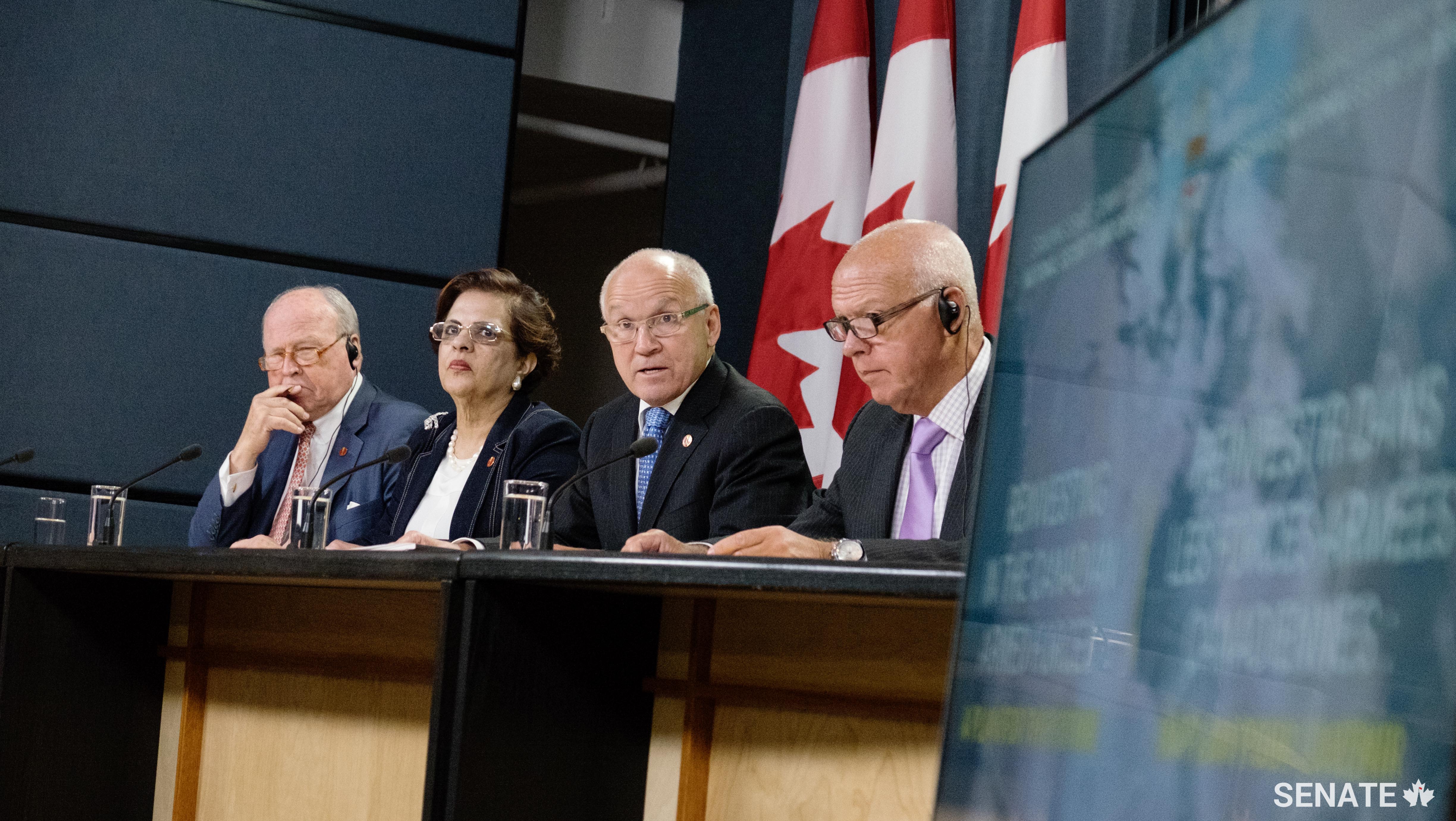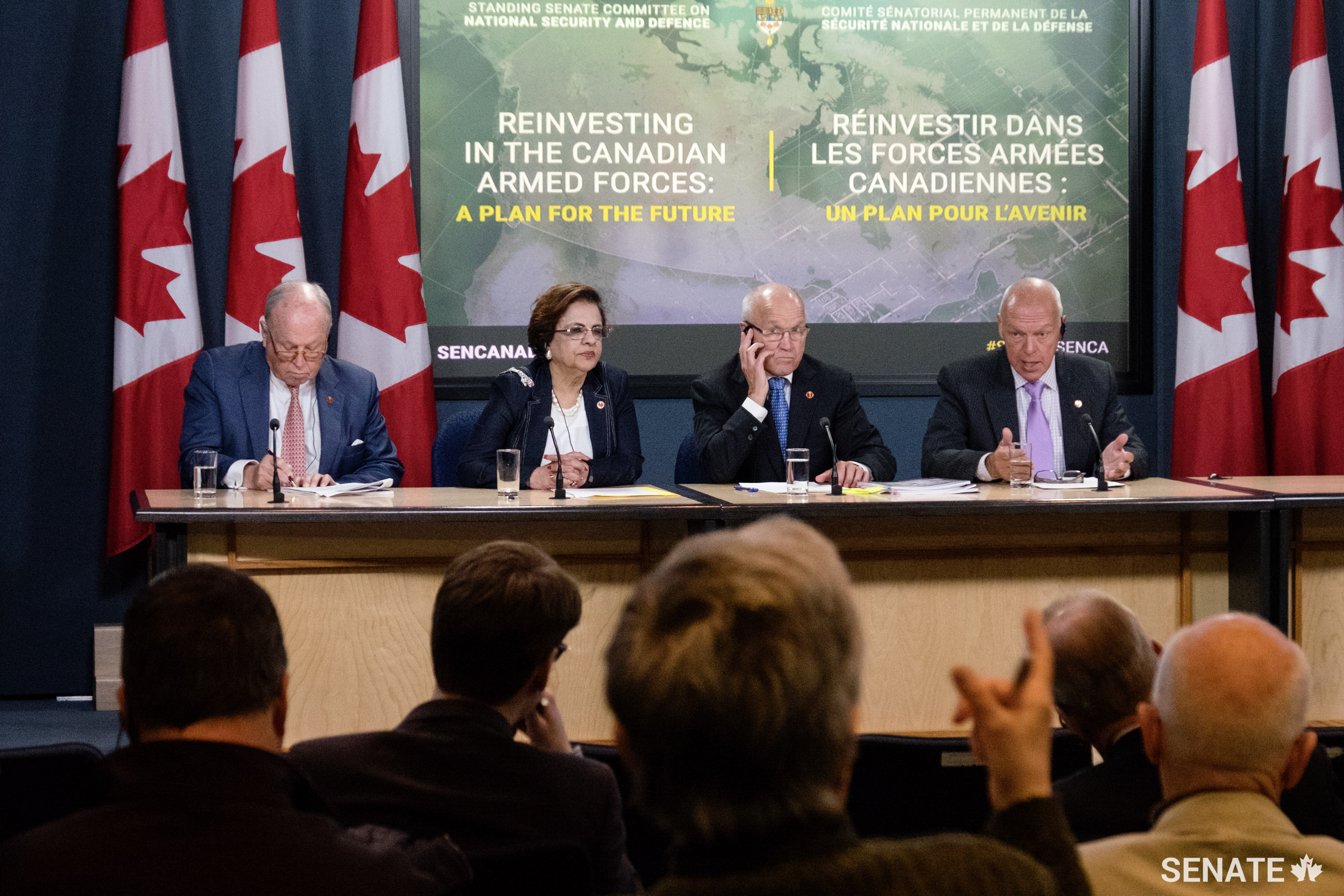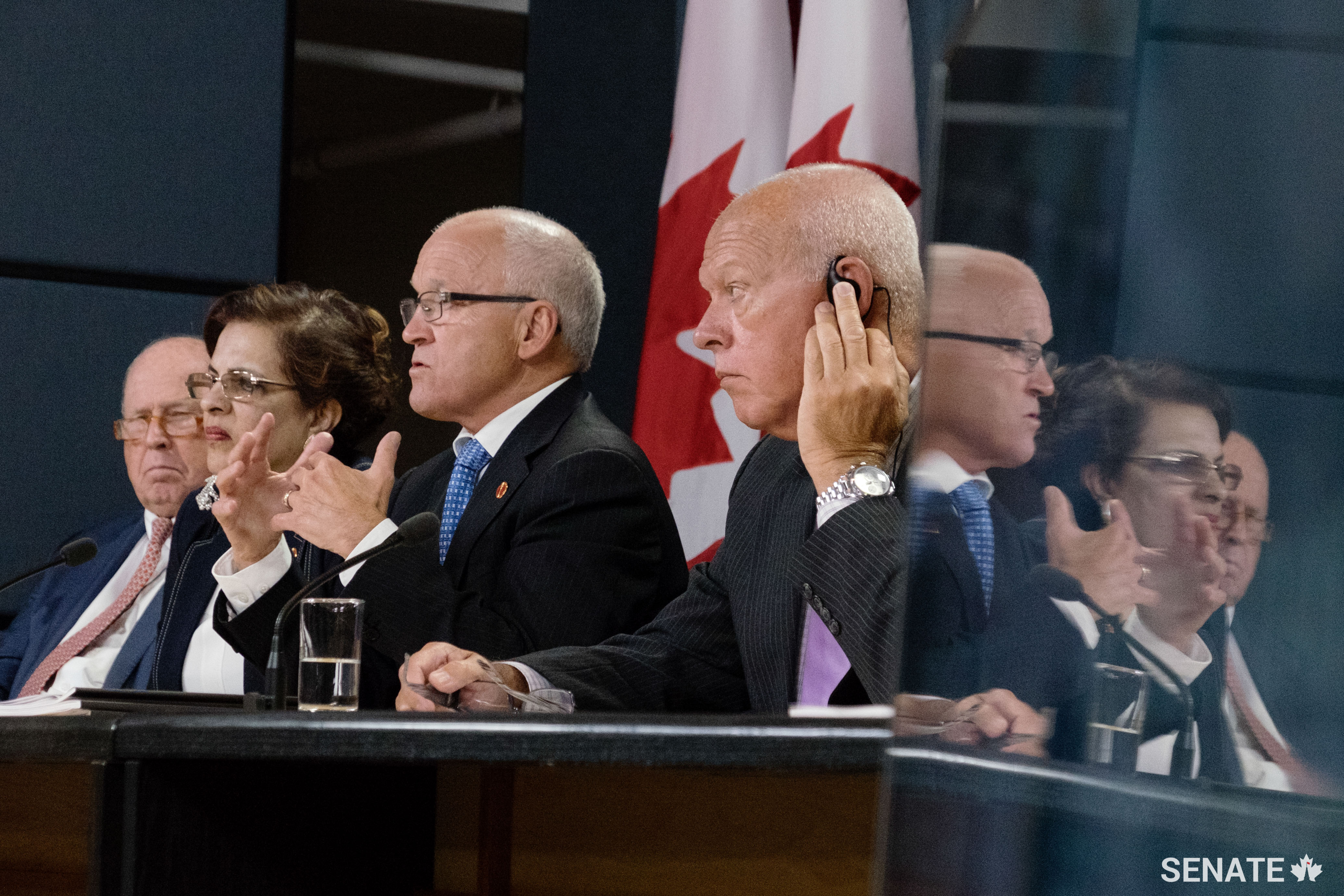Cancel Super Hornets jet order, Senate defence committee urges

The federal government should scrap the planned purchase of Super Hornet fighter jets to spare taxpayers from funding a costly stopgap solution that risks isolating Canada from the United States, the Senate Committee on National Security and Defence said in a report released Monday, May 8, 2017.
The report, Reinvesting in the Canadian Armed Forces: A Plan for the Future, concludes the committee’s analysis of the Canadian Armed Forces.
The recommendation to cancel a government decision to sole source 18 new Super Hornets to replace Canada’s aging CF-18s comes after expert testimony that long-term costs would outweigh any short-term savings and that these aircraft would reduce interoperability with Canada’s allies.
The committee urges the government to immediately begin a competition to replace the CF-18s and to make a decision by June 30, 2018.
Senators also made recommendations to create a more robust and egalitarian Army Reserve Force. Defence experts identified reservists as having extraordinary skill sets; the value of their contributions could be greatly increased with sufficient support.
Given the challenges of recruitment and retention, the committee recommends the government offer attractive bonuses to individuals with specialized skills that are in demand.
This recommendation is also meant to reduce the barriers women and minorities face in the armed forces. Indigenous peoples and visible minorities account for a very small percentage of Canada’s military; former Supreme Court Justice Marie Deschamps’ 2015 report noted an “undeniable link” between the prevalence of sexual misconduct in the military and the poor integration of women.
Chief of Defence Staff Jonathan Vance told the committee that diversity “increases our operational capability.” While senators welcome this view and the soon-to-be-established Recruiting and Diversity Task Force, the committee recommends that the government ensure the military provide a progress report on its efforts to see if words are translating into action.
For Canada’s military to thrive the government must provide adequate resources — in material but also in personnel.



*Please note that as of July 31, 2022, the name of the Senate Committee on National Security and Defence was changed to the Senate Committee on National Security, Defence and Veterans Affairs. More information about this change can be found here.
Related articles
Tags
Committee news
Cancel Super Hornets jet order, Senate defence committee urges

The federal government should scrap the planned purchase of Super Hornet fighter jets to spare taxpayers from funding a costly stopgap solution that risks isolating Canada from the United States, the Senate Committee on National Security and Defence said in a report released Monday, May 8, 2017.
The report, Reinvesting in the Canadian Armed Forces: A Plan for the Future, concludes the committee’s analysis of the Canadian Armed Forces.
The recommendation to cancel a government decision to sole source 18 new Super Hornets to replace Canada’s aging CF-18s comes after expert testimony that long-term costs would outweigh any short-term savings and that these aircraft would reduce interoperability with Canada’s allies.
The committee urges the government to immediately begin a competition to replace the CF-18s and to make a decision by June 30, 2018.
Senators also made recommendations to create a more robust and egalitarian Army Reserve Force. Defence experts identified reservists as having extraordinary skill sets; the value of their contributions could be greatly increased with sufficient support.
Given the challenges of recruitment and retention, the committee recommends the government offer attractive bonuses to individuals with specialized skills that are in demand.
This recommendation is also meant to reduce the barriers women and minorities face in the armed forces. Indigenous peoples and visible minorities account for a very small percentage of Canada’s military; former Supreme Court Justice Marie Deschamps’ 2015 report noted an “undeniable link” between the prevalence of sexual misconduct in the military and the poor integration of women.
Chief of Defence Staff Jonathan Vance told the committee that diversity “increases our operational capability.” While senators welcome this view and the soon-to-be-established Recruiting and Diversity Task Force, the committee recommends that the government ensure the military provide a progress report on its efforts to see if words are translating into action.
For Canada’s military to thrive the government must provide adequate resources — in material but also in personnel.



*Please note that as of July 31, 2022, the name of the Senate Committee on National Security and Defence was changed to the Senate Committee on National Security, Defence and Veterans Affairs. More information about this change can be found here.



